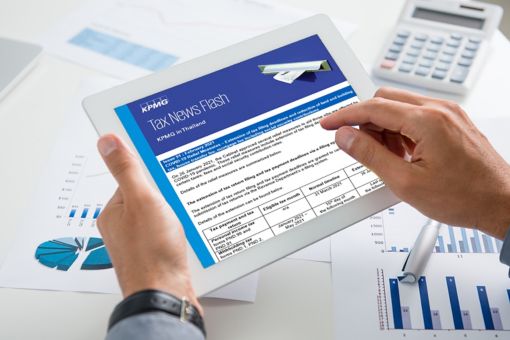On 9 February 2022, Thailand became the 98th jurisdiction to sign the Multilateral Convention to Implement Tax Treaty Related Measures to Prevent Base Erosion and Profit Shifting (“MLI”). It will be important for multinational enterprises (“MNEs”) to ensure current and future cross-border arrangements and transactions – particularly those with reliance on access to tax benefits under bilateral tax treaties with Thailand – are reviewed to ensure any tax benefits (to be) obtained can be sustained in light of the operation of the MLI.
Background
In 2017, Thailand became the 98th jurisdiction to join the Base Erosion and Profit Shifting (“BEPS”) project under the BEPS Inclusive Framework (“IF”) of the Organisation for Economic Cooperation and Development (“OECD”). The BEPS project is intended to tackle international tax avoidance which gives rise to significant losses of tax revenue globally. In 2015, the OECD released 15 action points for preventing BEPS of which IF members have committed to achieve four minimum standards as follows.
- Action 5: Countering Harmful Tax Practices
- Action 6: Prevention of tax treaty abuse
- Action 13: Country-by-Country reporting (“CbCR”)
- Action 14: Mutual Agreement Procedure (“MAP”)
Thailand has addressed Action 5 by way of participating in a regular peer review of preferential tax regimes under the OECD framework and by making changes to domestic tax regimes and tax incentives in the past. Action 13 has recently been addressed in Thailand in the form of a new regulation announced in October 2021 requiring MNE groups to comply with CbCR requirements in Thailand.
By signing up to the MLI, Thailand will be able to address the remaining two minimum standards at once – i.e., Action 6 and Action 14 – as well as other anti-BEPS measures. Although the MLI is not one of the minimum standards, it has been proposed by the OECD under Action 15 of the BEPS project in 2015. In essence, the MLI will allow Thailand to swiftly modify existing bilateral tax treaties on a multilateral basis once the MLI is ratified by both Thailand and the counterparties to those bilateral tax treaties.
Based on Thailand’s country position, the main focus areas of modifying identified bilateral tax treaties are to prevent tax treaty abuse, prevent the artificial avoidance of permanent establishments and improve treaty dispute resolution under the MAP.
Effective date of the MLI in Thailand
The date of entry into effect for Thailand depends on when the domestic process of the MLI ratification is completed by Thailand and when the relevant notification will be lodged with the OECD. To illustrate, assuming this occurs in Q2 2022 (this has not been confirmed), the MLI is expected to take effect in Thailand as early as 2023 (and potentially earlier for dispute resolution). This is assuming that the treaty partner jurisdiction has ratified the MLI for the treaty partner’s domestic purposes and deposited the instrument of ratification with the OECD.
Application to MNEs
MNEs should monitor when Thailand deposits the instrument of ratification and carefully consider and analyze how the MLI will affect their cross-border arrangements and transactions, as well as their existing business operations. For example, it is advisable to understand if the current operating, financing, and investment structures are at risk of being considered artificial in nature from a tax perspective. This may be investigated further by looking at whether sufficient organizational and economic substance exists in local jurisdictions to support tax residency status and reliance on access to treaty benefits (e.g., reduction of withholding tax on passive income). Most importantly, MNEs should ensure that the principal purpose of a cross-border arrangement or transaction is not tax driven or for the avoidance of tax. Documentation and substantiation will become more important than ever in the event of a tax audit in local jurisdictions where MNEs have footprints and potential denial of treaty benefits may be anticipated as a result of the MLI entering into force.
How we can help
At KPMG in Thailand, we have international tax specialists with deep levels of knowledge and considerable experience in advising Thai and foreign based MNEs on understanding the impact of the MLI, navigating the potential tax implications and uncertainties that may be inherent in current cross-border arrangements and transactions in multiple jurisdictions and supporting them to manage their tax affairs and develop a robust structure to withstand potential challenge from local tax authorities.
For any queries in relation to the MLI, please contact the following people, or reach out to your usual contact at KPMG in Thailand.
Key contacts
Connect with us
- Find office locations kpmg.findOfficeLocations
- kpmg.emailUs
- Social media @ KPMG kpmg.socialMedia



